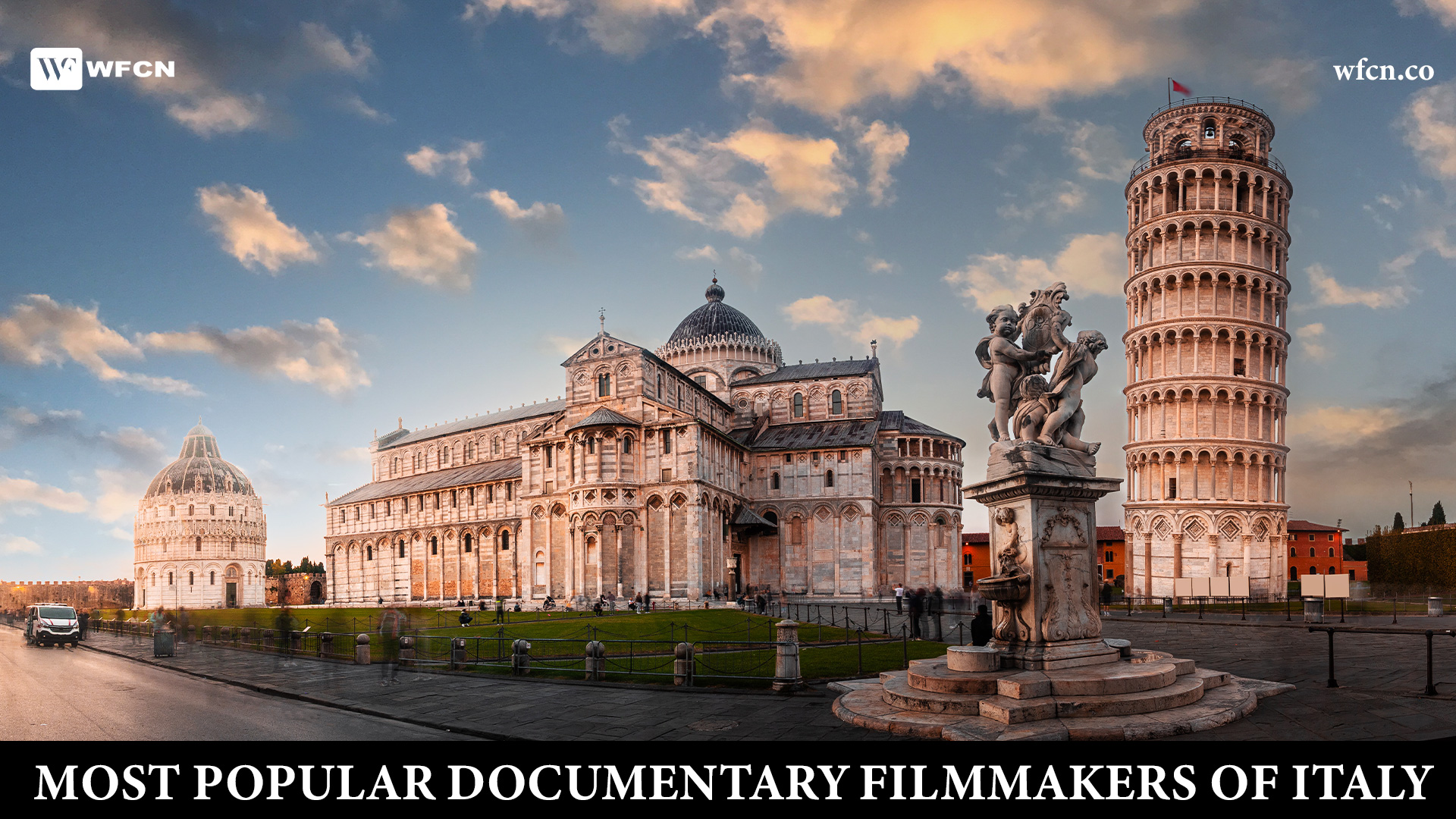Popular Documentary Filmmakers of Italy
Italy, a land renowned for its rich cultural heritage, breathtaking landscapes, and unparalleled artistic contributions, has not only been a muse for countless works of fiction but has also played a pivotal role in shaping the narrative of documentary filmmaking. The introduction of documentary films in Italy marks a fascinating chapter in Italy’s cinematic history, offering a unique lens through which to explore and understand its diverse socio-cultural tapestry.
Origin of Italian Documentary Films:
The root of documentary filmmaking in Italy can be traced back to the silent era, with pioneers like Luigi Maggiand Giovanni Pastrone experimenting with non-fictional storytelling. However, it was during the 1930s and 1940s that the genre truly began to take shape, driven by both political and artistic motivations. Mussolini's Fascist regime sought to harness the power of film as a propaganda tool, leading to the creation of documentary works that aimed to glorify the regime and portray an idealized vision of Italian society.
Most promising Documentary Filmmakers of Italy:
Gianfranco Rosi: Gianfranco Rosi is an Italian documentary filmmaker who was born on November 30, 1963. Sacro GRA, his 2013 film, received the Golden Lion Awards at the 70th Venice Film Festival, while Fire at Sea, his 2016 feature, won the Golden Bear Awards at the 66th Berlin International Film Festival.
Gloria Aura Bortolini: Gloria Aura Bortolini (born January 27, 1982) is an Italian television presenter and documentary filmmaker. Her most famous filmography is the two stories of Adamà (2010).
Massimo Mazzucco: Massimo Mazzucco (born July 20, 1954 in Turin) is an Italian Documentary Movie Makerbest known for his work on The New American Century and Cancer - The Forbidden Cure.
Franco Maresco: He is known for the directorial work carried out together with Daniele Ciprì. In 2014, he committed himself to the documentary Belluscone - Una storia siciliana, which details his abandoned study into Silvio Berlusconi's finance and friendships in Sicily, with different more or less recommendable personalities. His notable works is How we got Italian cinema into trouble - The true story of Franco and Ciccio - documentary (2004), I am Tony Scott or Lo zio di Brooklyn (1995), Seicortosei (2021) and The mafia is no longer what it used to be - documentary (2019).
Daniele Vicari: Daniele Vicari (born 26 February 1967) is an Italian director, screenwriter and producer. He made several documentary films like Il passato è una terra straniera (2008), La nave dolce (2012). In 2002 Vicari made his feature film debut with the drama Maximum Velocity (V-Max), which was entered into the competition at the 59th edition of the Venice International Film Festival and got him a David di Donatello for best new director.
Dagmawi Yimer: Dagmawi Yimer (born December 6, 1977) is an Italian Documentary Movie Maker of Ethiopian origin. He also co-founded and serves as vice president of the Archivio delle Memorie Migranti. His most famous work is Come UN uomo sulla terra (2008), To Whom It May Concern (2013), and C.A.R.A. Italia (2019).
Gloria Aura Bortolini: Gloria Aura Bortolini (born January 27, 1982) is an Italian documentary filmmaker and television presenter. His most famous work is The two stories of Adamà (2010), Autrefois (2012) and many more.
Paolo Barnard: Paolo Rossi-Barnard (born 2 January 1958) is an Italian documentary maker. He is interviewed in the documentary PIIGS, dubbed in English by actor Willem Dafoe.
Francesca Melandri: Francesca Melandri is an Italian author, screenwriter, and documentary filmmaker who was born on June 9, 1964 in Rome. In 2012, she was awarded the Rapallo Carige Prize for her novel Più alto del mare. She began writing at an early age, first as a scriptwriter, and has worked on films, television programs, and a number of award-winning documentaries.
Massimo Mazzucco: Massimo Mazzucco (born July 20, 1954 in Turin) is a documentary filmmaker of Italybest known for his work on The New American Century and Cancer - The Forbidden Cure.
The introduction and evolution of documentary films in Italy have been shaped by a dynamic interplay of historical, political, and artistic influences. From the neorealist exploration of post-war struggles to the politically charged documentaries of the 1970s and the contemporary engagement with global issues, Italian documentaries have proven to be a versatile and powerful medium. As the cinematic landscape continues to evolve, one can only anticipate the further diversification and innovation that will characterize the future ofdocumentary filmmaking in Italy.





